Filter by

Personal Finance
This text has an attitude: that in addition to providing sources of practical information, it should introduce you to a way of thinking about your personal financial decisions. This should lead you to thinking harder and farther about the larger and longer consequences of your decisions. Many of the more practical aspects of personal finance will change over time, as practices, technologies, …
- Edition
- -
- ISBN/ISSN
- -
- Collation
- -
- Series Title
- -
- Call Number
- 330
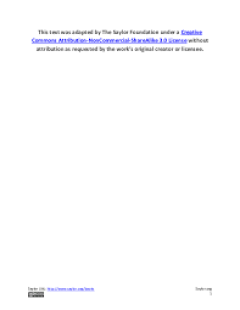
Money and Banking
This book is designed to help you internalize the basics of money and banking. There is a little math, some graphs, and some sophisticated vocabulary, but nothing terribly difficult, if you put your brain to it. The text’s most important goal is to get you to think for yourselves. To fulfill that goal, each section begins with one or more questions, called Learning Objectives, and ends wit…
- Edition
- -
- ISBN/ISSN
- -
- Collation
- -
- Series Title
- -
- Call Number
- 330
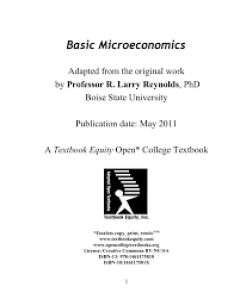
Basic Microeconomics
Archeological and written records of human existence suggest that obtaining the material means to satisfy wants has been a perpetual problem. Food and shelter are requirements of human life. Other goods satisfy a range of human desires and give pleasure or utility to individuals. The study of ways that humans deal with these problems of provisioning is called “economics.”
- Edition
- -
- ISBN/ISSN
- -
- Collation
- -
- Series Title
- -
- Call Number
- 330
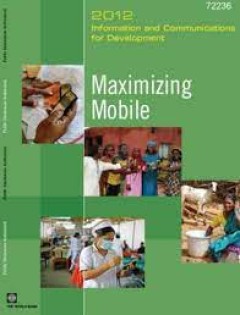
Maximizing Mobile 2012 Information and Communications for Development
Mobile phones, a rarity in many developing countries at the turn of the century, now seem to be everywhere. Between 2000 and 2012, the number of mobile phones in use world- wide grew from fewer than 1 billion to around 6 billion. The mobile revolution is transforming livelihoods, helping to create new businesses, and changing the way we communi- cate. The mobile phone network is already t…
- Edition
- -
- ISBN/ISSN
- 978-0821389911
- Collation
- -
- Series Title
- -
- Call Number
- 384

Accounting and Financial Information
Accounting is often called “the language of business” because it communicates so much of the information that owners, managers, and investors need to evaluate a company’s financial performance. These people are stakeholders in the business—they’re interested in its activities because they’re affected by them. The financial futures of owners and other investors may depend heavily on …
- Edition
- -
- ISBN/ISSN
- -
- Collation
- -
- Series Title
- -
- Call Number
- 330

Data-driven optimization and knowledge discovery for an enterprise informatio…
This book provides a comprehensive set of optimization and prediction techniques for an enterprise information system. Readers with a background in operations research, system engineering, statistics, or data analytics can use this book as a reference to derive insight from data and use this knowledge as guidance for production management. The authors identify the key challenges in enterprise i…
- Edition
- -
- ISBN/ISSN
- 9783319187389
- Collation
- xii, 160 pages
- Series Title
- -
- Call Number
- 338.7
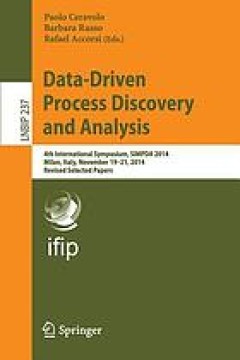
Data-driven process discovery and analysis
This book constitutes the thoroughly refereed proceedings of the Fourth International Symposium on Data-Driven Process Discovery and Analysis held in Riva del Milan, Italy, in November 2014. The five revised full papers were carefully selected from 21 submissions. Following the event, authors were given the opportunity to improve their papers with the insights they gained from the symposium. Du…
- Edition
- -
- ISBN/ISSN
- 9783319272436
- Collation
- viii, 123 pages
- Series Title
- -
- Call Number
- 338.71
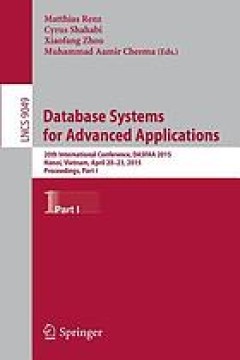
Database systems for advanced applications
This two volume set LNCS 9049 and LNCS 9050 constitutes the refereed proceedings of the 20th International Conference on Database Systems for Advanced Applications, DASFAA 2015, held in Hanoi, Vietnam, in April 2015. The 63 full papers presented were carefully reviewed and selected from a total of 287 submissions. The papers cover the following topics: data mining; data streams and time series;…
- Edition
- -
- ISBN/ISSN
- 9783319181202
- Collation
- xxii, 643 pages
- Series Title
- -
- Call Number
- 328
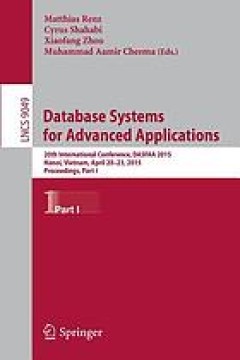
Database systems for advanced applications
This two volume set LNCS 9049 and LNCS 9050 constitutes the refereed proceedings of the 20th International Conference on Database Systems for Advanced Applications, DASFAA 2015, held in Hanoi, Vietnam, in April 2015. The 63 full papers presented were carefully reviewed and selected from a total of 287 submissions. The papers cover the following topics: data mining; data streams and time series;…
- Edition
- -
- ISBN/ISSN
- 9783319181202
- Collation
- xxii, 643 pages
- Series Title
- -
- Call Number
- 328
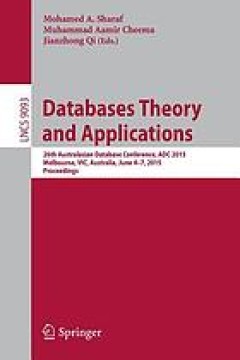
Databases theory and applications
This book constitutes the refereed proceedings of the 26th Australasian Database Conference, ADC 2015, held in Melbourne, VIC, Australia, in June 2015. The 24 full papers presented together with 5 demo papers were carefully reviewed and selected from 43 submissions. The Australasian Database Conference is an annual international forum for sharing the latest research advancements and novel appli…
- Edition
- -
- ISBN/ISSN
- 9783319195483
- Collation
- xxv, 334 pages
- Series Title
- -
- Call Number
- 328
 Computer Science, Information & General Works
Computer Science, Information & General Works  Philosophy & Psychology
Philosophy & Psychology  Religion
Religion  Social Sciences
Social Sciences  Language
Language  Pure Science
Pure Science  Applied Sciences
Applied Sciences  Art & Recreation
Art & Recreation  Literature
Literature  History & Geography
History & Geography